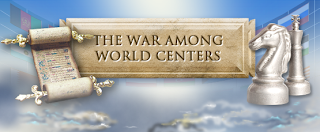Almost every French man is a staunch Europhile, which is quite paradoxical in fact — most part of foreigners, visiting France are often stricken by their relatively narrow views, lack of foreign languages knowledge and their (at times excessive) chauvinism. Nevertheless, it were the Frenchmen who backed up the first attempt of European integration. By the end of his rule in the 9th century Carl the Great, Emperor of the West reigned over the continental empire that included contemporary France, parts of Spain and Italy, German territories and the Balkans. For many intellectuals and historians Carl the Great is the founding father of today’s Europe. Fortunately for Europe or not, but after his death the empire was disbanded. Second French attempt to create united Europe belonged to Napoleon — he hoped to control vast territory, stretching from Corsica to Moscow. It is well-known (in Russia especially) that this armed attempt to unite the continent by the power of arms failed in 1812, having met fierce resistance of Russians and the terribly cold winter.
After the Second World War, Europe fetched itself divided into two blocs — American trans-Atlantic bloc and the Soviet continental one. Western Europe was restored for American Marshall Plan funds in exchange for NATO integration, which was a U. S.-controlled military alliance found in 1949 and intended to prevent any imperial aspirations of the Soviet Union. In 1955 countries of the Eastern Europe, being under the Soviet auspice, entered the Warsaw Treaty, yet another military alliance, created as the NATO counterpoise. French Europhilia made itself visible once again in 1967, when General De Gaulle withdrew his country from the NATO and gave it an access to the nuclear energy.Turning his back to the Anglo-Saxon world, De Gaulle maintained his farseeing project of continental Europe, temporarily tore down the iron curtain and stood up for the historical proximity with Germany and Russia within the framework of continental Europe stretching from Atlantics to the Ural Mountains. In 1960 Paris established itself as a political capital and France undertaken yet another attempt to re-create Europe.
This Gaullist idea of Paris-Berlin-Moscow axis and the concept of Russia (Soviet Union at that time) being a part of Europe tended to turn fairer as the time went by.There have always been discussions whether Russia really belongs to Europe in France. Many people, poorly knowing Russia or not knowing it at all, were asking me about this Gaullist border, which the Ural Mountains might have been. They asked if the Ural — border line between Europe and Asia — really was a border right in the heart of Russia or Europe. And are the people living over the Ural Mountains really different from those, living in its western part? These questions may undoubtedly cause a smile on the faces of those who know the country but they are not make-believe. In my opinion, semantic mistake of General De Gaulle and the relative lack of knowledge about Russia among the common Europeans make this quite understandable.Since I live in Russia, I can only confirm that before my arrival I considered it to be a completely European country — so to say, European in its essence, be it the mentality of its citizens (Orthodox Slavs) or the dominating cultural legacy of Rome and Athens. This European tint is present all along its territory — from Moscow to the heart of Siberia, in Vladivostok, at the Pacific coast, in the Caucasus and Northern Karelia. Even Kazan with its eastern culture is not less European than, say, Sarajevo.But I have to admit that Russia is not like the rest of European countries. Sheer size, variety of nations inhabiting it, territories stretching to Asia and Pacific Ocean — Russia is an empire, colossus, which spine is European but certain vertebrae may be Asian, Tatar, Muslim or even Buddhist. I often tell French friends of mine that we have a lot to learn from Russia in the field of “multi-cultural model” that Europe is trying to establish with such great efforts.
Today, while Russia and NATO discuss the creation of security architecture in the Northern hemisphere, stretching from Vancouver to Vladivostok, the discords remain. Via NATO, which extended itself up to the Eastern- and Western-European borders, the United States infiltrated the Eurasian continent — theater of war that is considered to be vitally important for orchestrating the world politics. Russia, being a member of Shanghai Treaty Organization, often called the Asian NATO is willing to attract Europe into new additional continental security system. In that sense, Russian initiatives on creation of continental security structure and a common integral economic space from Lisbon to Vladivostok are every bit as Gaullist as they are farsighted.The only difference is that this time political impulse comes from Moscow, rather than from Paris like 40 years ago. There’s a certain reason for that: gauging from Moscow, Europe stretches 4.000 km to the Atlantic and 6.500 km to the East, through Siberia to the Pacific Coast. European political centre of gravity just shifted to the East. Paris-Berlin-Moscow alliance would have allowed Europeans — who failed to gain real political and military autonomy after the 1945 — not to get stuck in the unilateral NATO ties and to obtain an exit to the utmost important regions of tomorrow: Caucasus, Central Asia and Asian-Pacific region.
In the past Paris was the capital of Europe, today it is Brussels — what if Moscow to become one in future?
